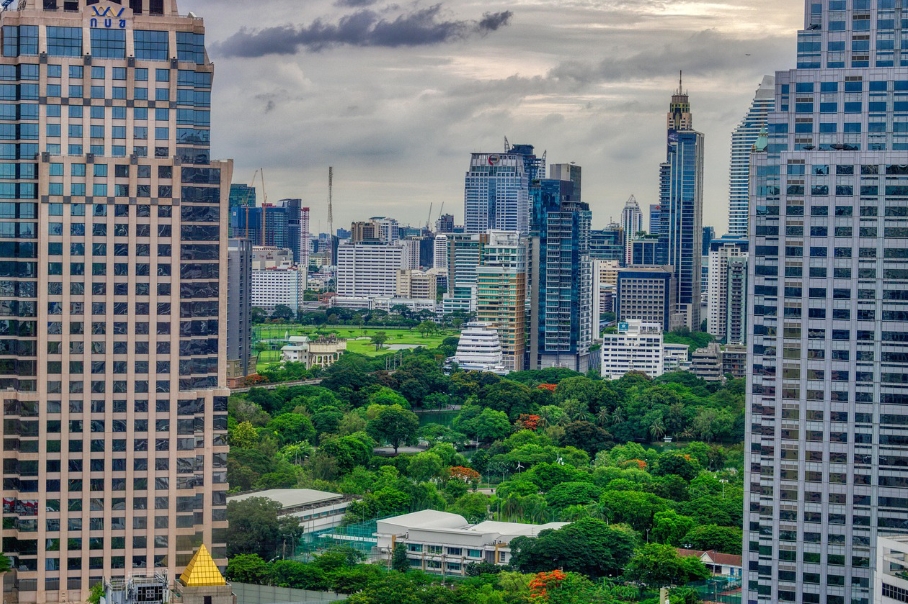Thailand’s real estate market in 2025 continues to attract long-term interest, particularly from international investors and relocating professionals. However, recent developments—including the deadly earthquake in neighboring Myanmar that sent tremors through Bangkok—have introduced a new layer of caution into the capital’s condominium sector. In light of these shifts, selecting a reputable real estate agency in Thailand has become more crucial than ever when evaluating property options in the country.
This article explores how current events are reshaping the market, what investors should consider, and which segments still hold promise despite short-term disruptions.
Earthquake Fallout and Condo Market Jitters
In early 2025, a 7.7-magnitude earthquake in Myanmar, the strongest in the region in a century, caused visible damage to thousands of high-rise structures in Bangkok. A still-under-construction office tower collapsed, while over 13,000 buildings were reported with varying degrees of damage, according to Thai authorities. The impact extended far beyond structural assessments—shaking consumer confidence and halting buying decisions for many.
According to real estate analysts and consultants, the quake has exacerbated an existing oversupply problem in Bangkok’s condominium sector. As reported by Thai Real Estate agencies, developers in Greater Bangkok were already carrying an inventory of over 235,000 unsold residential units—the highest level since 2018. The event has added further hesitation among prospective buyers, especially those considering high-rise condos in the central business districts and suburbs.
Shifting Buyer Sentiment
The psychological impact of the quake is already evident. Developers and platforms report a noticeable dip in buyer activity, with some investors pausing condo searches altogether. According to PropertyScout’s Sales Director, Pierre Lung, interest in high-rise buildings has cooled, especially for units in under-construction or newly launched developments.
While no fatalities occurred from condominium collapses and inspections by major developers have shown no major structural damage, the incident has put a spotlight on building quality and disaster preparedness. Some buyers are now explicitly asking about seismic resistance, structural certifications, and soil testing when evaluating condo projects.
Developers Respond with Confidence Campaigns
In response to growing concerns, several major developers have launched public campaigns to restore buyer confidence. Sansiri Pcl, one of the top developers in Thailand, issued a video message from its CEO assuring the public that more than half of its 250 residential projects had undergone post-quake inspections—with no significant structural damage found.
Other leading developers such as Origin Property and AP Thailand have taken similar measures, publishing reports and inspection footage to reaffirm their building safety credentials. These rapid public relations efforts aim to contain what is expected to be a temporary dent in demand for the condo sector.
Longer-Term Trends Still Favor Investment
Despite recent tremors—both literal and market-related—the underlying fundamentals of Thailand’s property sector remain strong:
- Visa reforms such as the DTV (Destination Thailand Visa) and LTR (Long-Term Resident Visa) continue to attract digital nomads, retirees, and skilled professionals.
- Infrastructure investments, including new mass transit lines and airport expansions, are enhancing connectivity and long-term land value.
- Thailand remains a relatively affordable real estate market compared to peers like Singapore, Hong Kong, or even Bali, especially for those with strong foreign currencies.
What’s shifting, however, is where and what people are choosing to buy.
Rising Interest in Landed Homes and Low-Rise Developments
One of the most immediate effects of the earthquake is a surge in interest toward low-rise housing projects and landed properties. While high-rise condominiums in central Bangkok may face sluggish demand for several months, developers focusing on townhouses, detached homes, and villas—especially in Bangkok’s outskirts or satellite provinces—may benefit from a preference shift.
In parallel, cities like Chiang Mai, Hua Hin, and Phuket continue to attract long-stay foreign residents and investors, many of whom are looking for low-density living environments. These markets have remained largely unaffected by the quake and may see increased activity as a result.
Areas to Watch
Bangkok
While the central condo market is currently under pressure, locations along new MRT and BTS lines, such as Ladprao, Ratchayothin, and Bang Sue, still present long-term upside. Projects that emphasize earthquake-resistant design and sustainable construction may regain buyer trust faster.
Phuket & Hua Hin
With no direct impact from the quake, these areas continue to be attractive for retirees and lifestyle investors. Low-rise, luxury projects in areas like Bang Tao, Kamala, or Khao Takiab offer strong appeal, particularly as demand shifts from vertical to horizontal living.
Eastern Economic Corridor (EEC)
Regions like Pattaya, Rayong, and Chonburi are benefitting from ongoing government investment, especially in logistics, aviation, and industry. Real estate in these areas—especially for rent-friendly condominiums and mixed-use developments—still offers strong ROI potential.
Market Outlook: Short-Term Caution, Long-Term Potential
Analysts from Kiatnakin Phatra Securities note that the quake’s impact on condo demand may last 3–6 months, with potential delays in new project launches and added costs for inspections or retrofitting. Developers highly concentrated in the condominium segment may face balance sheet pressure, while diversified firms or those focused on low-rise assets may perform more steadily.
Yet, many believe the confidence shock is temporary. As building inspections are completed and safety measures reinforced, market sentiment is expected to recover—particularly for well-located, well-built properties.
Final Thoughts
Thailand’s real estate market in 2025 is experiencing a moment of reckoning—not collapse. The recent Myanmar earthquake has prompted important conversations about safety, inventory, and buyer trust, but it hasn’t fundamentally changed the long-term appeal of property investment in Thailand.
In this environment, caution is wise—but opportunity still exists. Investors should focus on projects with high construction standards, clear legal documentation, and reputable developers. Whether seeking a home or a rental property, working with a professional real estate agency in Thailand is more important than ever to navigate risks and secure long-term value.





























